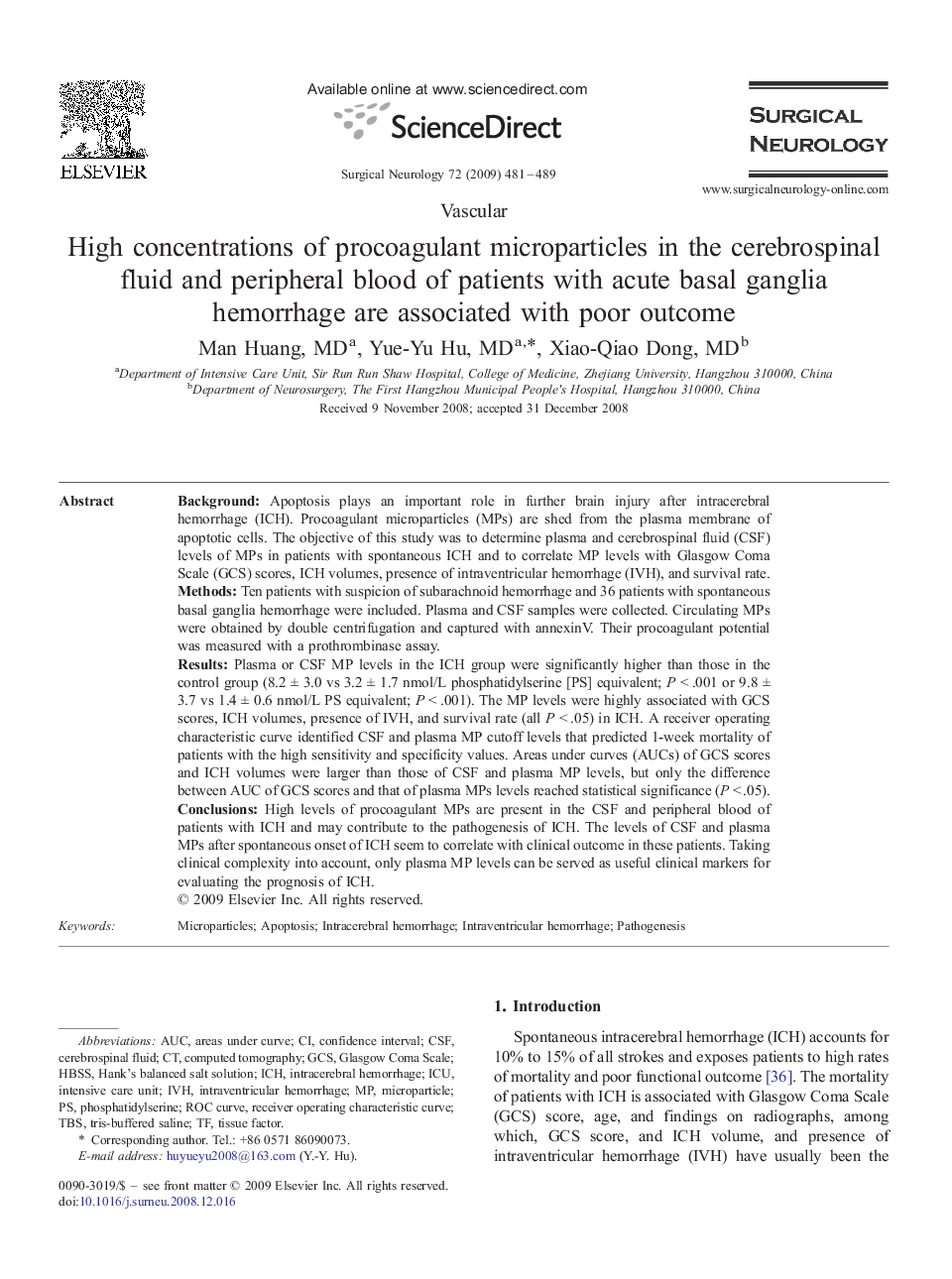| Article ID | Journal | Published Year | Pages | File Type |
|---|---|---|---|---|
| 3092204 | Surgical Neurology | 2009 | 9 Pages |
BackgroundApoptosis plays an important role in further brain injury after intracerebral hemorrhage (ICH). Procoagulant microparticles (MPs) are shed from the plasma membrane of apoptotic cells. The objective of this study was to determine plasma and cerebrospinal fluid (CSF) levels of MPs in patients with spontaneous ICH and to correlate MP levels with Glasgow Coma Scale (GCS) scores, ICH volumes, presence of intraventricular hemorrhage (IVH), and survival rate.MethodsTen patients with suspicion of subarachnoid hemorrhage and 36 patients with spontaneous basal ganglia hemorrhage were included. Plasma and CSF samples were collected. Circulating MPs were obtained by double centrifugation and captured with annexinV. Their procoagulant potential was measured with a prothrombinase assay.ResultsPlasma or CSF MP levels in the ICH group were significantly higher than those in the control group (8.2 ± 3.0 vs 3.2 ± 1.7 nmol/L phosphatidylserine [PS] equivalent; P < .001 or 9.8 ± 3.7 vs 1.4 ± 0.6 nmol/L PS equivalent; P < .001). The MP levels were highly associated with GCS scores, ICH volumes, presence of IVH, and survival rate (all P < .05) in ICH. A receiver operating characteristic curve identified CSF and plasma MP cutoff levels that predicted 1-week mortality of patients with the high sensitivity and specificity values. Areas under curves (AUCs) of GCS scores and ICH volumes were larger than those of CSF and plasma MP levels, but only the difference between AUC of GCS scores and that of plasma MPs levels reached statistical significance (P < .05).ConclusionsHigh levels of procoagulant MPs are present in the CSF and peripheral blood of patients with ICH and may contribute to the pathogenesis of ICH. The levels of CSF and plasma MPs after spontaneous onset of ICH seem to correlate with clinical outcome in these patients. Taking clinical complexity into account, only plasma MP levels can be served as useful clinical markers for evaluating the prognosis of ICH.
